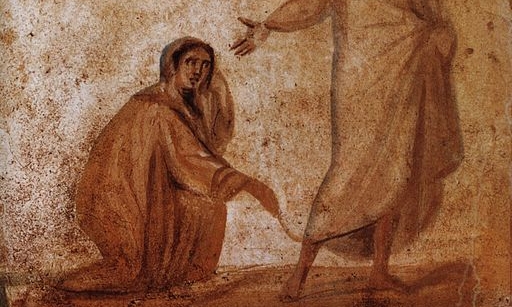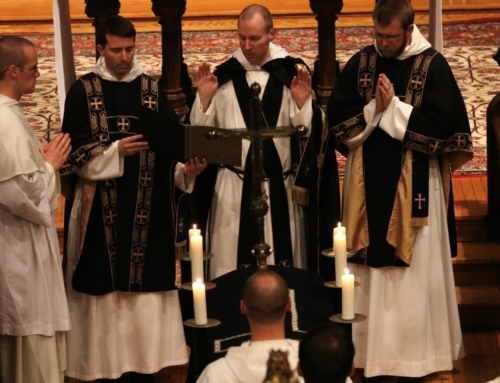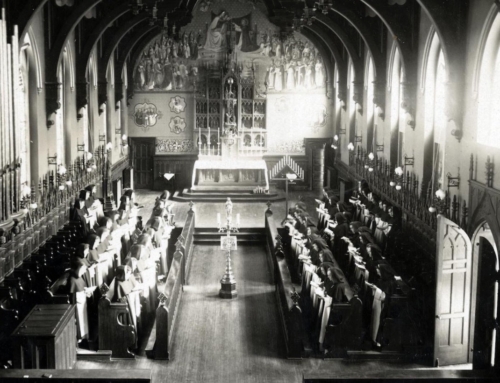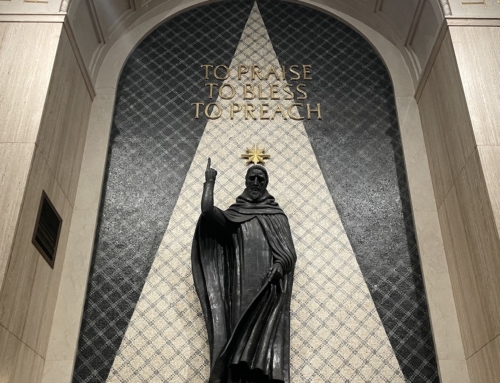If you travel to Israel and visit the towns that encircle the Sea of Galilee, you are bound to pass Gennesaret. It is an idyllic place, just on the seashore, covered by tall, sunlit grass like something out of a Thomas Kinkade painting. It neighbors the town of Capernaum in whose synagogue the Bread of Life discourse took place (Jn 6:22-59).
We hear in today’s Gospel reading that Jesus and his disciples tied up their boat in Gennesaret and passed through the neighboring villages. Those who touched even the tassels of Jesus’s cloak were healed of their maladies (Mk 6:53-56).
Just as Jesus was able to heal the physical ailments of those who simply touched his cloak in today’s Gospel, we too can attain God’s mercy for our spiritual ailments by asking his forgiveness in the Sacrament of Reconciliation. In this divine encounter, the mercy that God offers us is both gratuitous and mysterious.
This mercy can exist in human forms as well, and when I read about Jesus as a healer of body and soul, I was reminded of the words spoken by my Dominican brothers who recently made solemn profession on February 1. While lying prostrate on the ground, they were asked what they sought in making profession, to which they replied, “God’s mercy and yours.” It was an incredibly powerful manifestation of God’s majesty to see six Dominican friars lie on the ground in complete submission to his will and mercy.
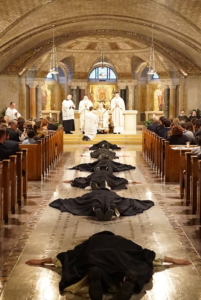
Mercy is a large part of our Dominican life. We not only seek it in sacramental confession from God, but we also seek it constantly from our brothers. Saint Paul exhorts us to “be kind to one another, tenderhearted, forgive one another, as God in Christ forgave you” (Eph 4:32). Inevitably, we have found ourselves the cause of a disagreement or the instigation of an argument. Tensions can run high when a large number of fervent men live together, yet the willingness to ask for forgiveness shows a remarkable maturity that we all try to learn.
The words of profession are not empty words, for we really seek the mercy of our brothers in daily life. It is virtuous to ask for someone else’s forgiveness, but it is equally important to humbly and contritely receive forgiveness from your brother. Those moments are where the bonds of fraternity are forged in fire.
As consecrated religious, the community life provides a glimpse of the kingdom of heaven here on earth (cf. St. John Paul II, Vita Consecrata, 6). In our earthly lives we must lovingly strive to help our brothers along this pilgrimage to attain everlasting salvation. By God’s grace, the mercy we have toward our brothers brings each of us a little bit closer to the ultimate reward that “God has prepared for those who love him” (1 Cor 2:9).
Let us therefore walk the shores of Galilee and, like the woman at Gennesaret, reach out for the tassel of Christ’s cloak, imploring his mercy and love. Let us pray for one another, so that we may have strength on our journey and enter that place where we shall worship the God of mercy forever.
✠
Image: Catacombs of Marcellinus and Peter, The Healing of a Bleeding Woman

